With nearly a year as chairperson of the IFA Farm Families and Social Affairs Committee under her belt, Teresa Roche is focused on using her platform to bring awareness of the challenges facing people living in rural Ireland and drive policy change.
For her, the biggest barrier facing farms now is succession, while other important issues include access to finance, lack of affordable housing, increased suicide rates, drug abuse and access to healthcare services.
Teresa will be speaking at the Women & Agriculture conference in the Lyrath Hotel on Thursday, 24 October.
Working in rural communities
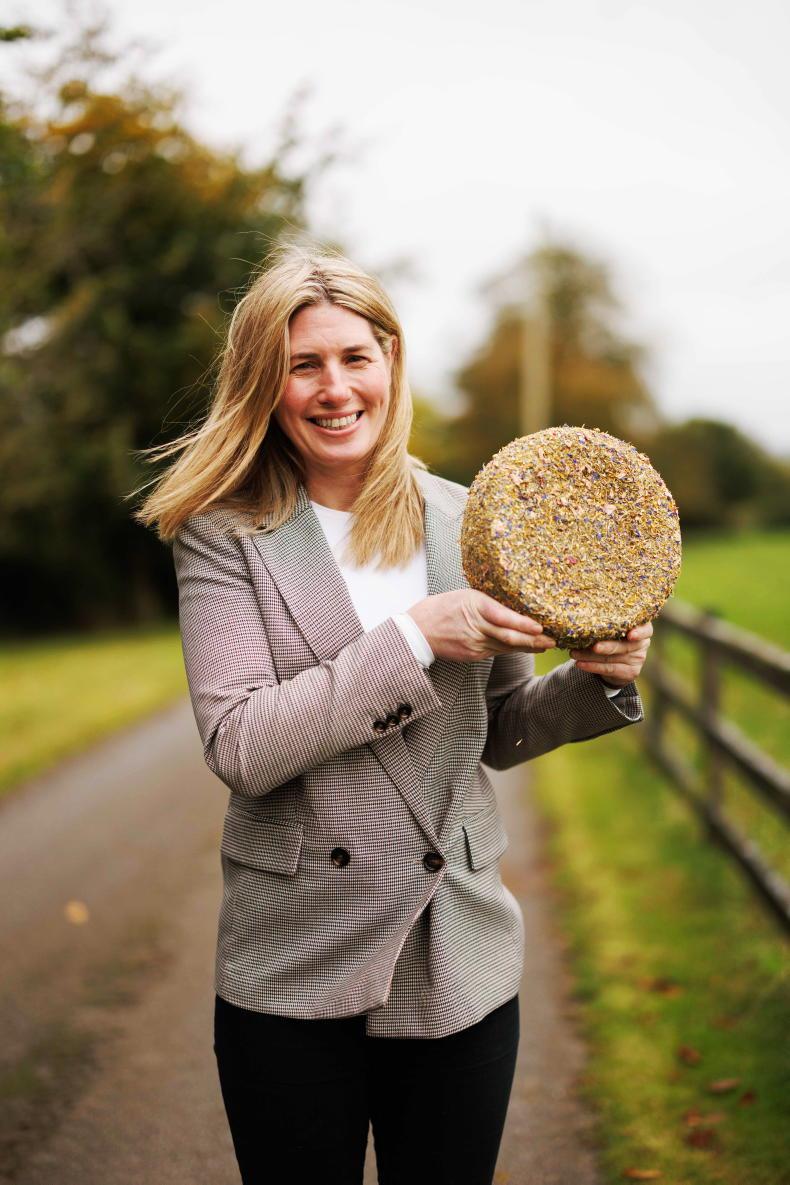
Teresa Roche, chairperson IFA Farm Family Committee at her cheesemaking business in Abbey, Co Galway. \ Eamon Ward
Teresa qualified as a nurse and spent most of her early years training in London, before moving further afield to Australia and New Zealand.
This was a big change from living in a rural part of Co Galway, but she was always intrigued by people and loved learning about different cultures. She worked as a RAN (remote area nursing) for seven years.
“You work in some of the most extremely remote regions. Everything is critical in a rural environment. In one area I was in, the Pilbara in western Australia, I was 2,500km from civilisation. We would get a two-seater plane, and they would fly us out into the remote desert and drop us off,” she says.
Learning how to drive a four-wheel vehicle, Teresa ended up as the ambulance, hearse and all-round community chauffeur.
“I felt extremely relied on by the community. Life or death, everything is so fragile,” she says.
In that area, they had massive issues with addiction, drug and alcohol abuse, child neglect, domestic violence and severe poverty on all extremes, which was driven by politics. While there, she could see so many gaps within policy and found it very frustrating.
“There could have been supports put into place to give people and the farming community an opportunity or a voice,” she says,
This led her to taking up an interest in policy and using her voice to drive change.
Building a business
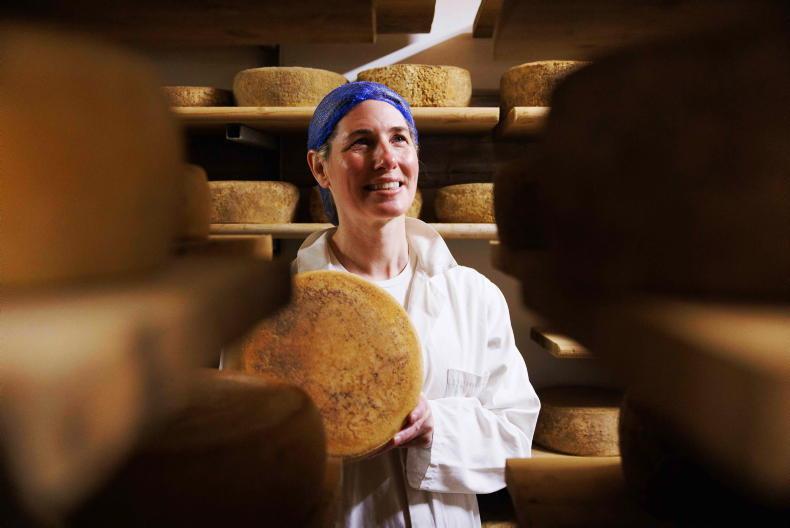
Teresa with her award-winning Kylemore Farmhouse Cheese. \ Eamon Ward
After spending 14 years working as a nurse in rural communities on the other side of the world, Teresa returned home to set up her own business on the family farm, making mountain cheese – after seeing a gap in the market.
She decided to take part in a three-month, start-your-own business course with the Galway Local Enterprise Office and Galway County Council, before travelling to Switzerland to learn how to make cheese.
“I had an interest in mountain cheeses, because they are produced seasonally from April to October, when the cows are on grass and the milk is the best quality. Without grass-fed production, we don’t have a high-quality product in my opinion,” she says.
Setting up Kylemore Farmhouse Cheese in 2016, Teresa converted an old sheep shed into a production unit and farm shop.
“I thought we needed something different, and that would be very much reflective of our farm and our community and our hinterland of the Slieve Aughty mountains,” she says.
She now produces four different types of cheeses and has won several national awards.
At the time it was a big jump for Teresa to leave her professional nursing career behind, she felt a lot of pressure from her small rural community, where they are short for nurses but for her, it was the right move.
With her parents, Bertie and Julie, busy milking and under a lot of pressure, something had to change. Teresa’s brother Brian diversified first, and started an agricultural steel company making trailers and sheds, with three people employed.
“If we didn’t diversify, we wouldn’t be milking cows in 10 years. Diversification was the only future on this farm, because we have 70 acres and we rent twice as much as we own,” she says.
As an entrepreneur, Teresa has made a lot of personal sacrifices to put her business first.
“I think naivety has driven me to where I am, I wouldn’t have said I went in with my eyes open. I didn’t understand the difficulties of setting up a business and the challenges that were facing people on the ground, particularly in rural Ireland,” says Teresa.
Accessibility to finance was a huge problem for her after returning home from being abroad, as she needed to have two years of accounts to show that she could sustain the loan.
With a passion for education, she started taking group tours and explaining the production process, and the business grew organically.
“I was using that as an opportunity to advocate for women in agriculture,” she says.
If we didn’t diversify, we wouldn’t be milking cows in 10 years. Diversification was the only future on this farm
In her role as chairperson of the IFA Farm Family and Social Affairs Committee, Teresa believes having Alice Doyle as the first female deputy president of the IFA has given strength to the organisation, showing there is equality and representation.
“I’m very passionate about advocating for people living in rural Ireland and showcasing that through food production and what I do. You’re talking about all the issues that are happening on the ground,” she says.
That’s the angle Teresa has come at it, not being a typical farmer.
“I work on our farm, I milk cows, I feed cows, I calve cows. I might not be the farmer of the farm, but I am still a farmer in my own right, I have my own herd number. I think it’s important to know that we are equal in farming,” she says.
The biggest issue she sees on the ground facing farm families is succession and generation renewal.
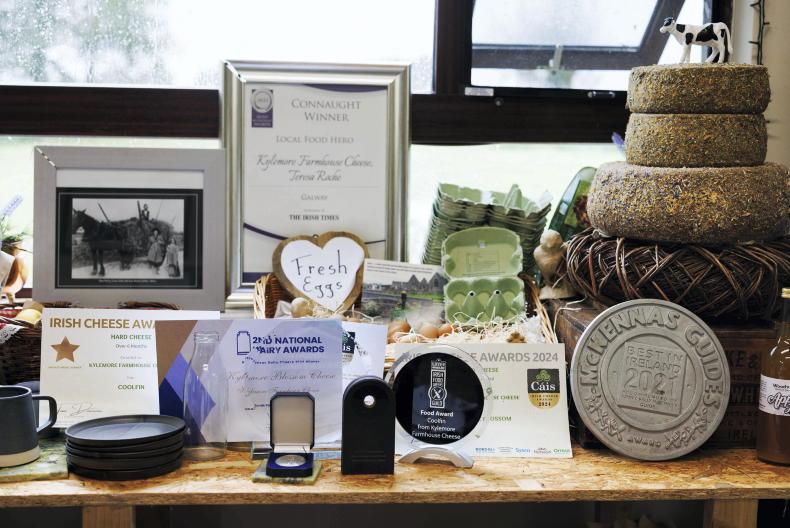
Teresa Roche's cheesemaking business in Abbey, Co Galway. \ Eamon Ward
“We need a retirement or a succession plan, we don’t have an urgent plan in place to benefit both generations. Older farmers need a stepping stone to go out over a transition period, and it needs to entice them. It also needs to be financially rewarding for the younger farmer coming in as they need to have security,” she says.
Living with her parents, in her early 40s, Teresa knows housing is a big challenge for the younger generation.
“It’s not what I want to do, but I can’t afford to buy a house, because my business is the priority for now. I think all young people who are living in rural Ireland cannot get a house.
“You’re even putting off having children, you’re putting off having relationships, you’re putting off your own privacy,” she says.
Teresa has also seen firsthand the decline of mental health across rural communities, particularly over the last few months.
“Unfortunately, we lost three people to suicide in our village in one week, an 80-year-old, a 46-year-old and a 32-year-old. Everyone has been shaken by that. That was only two weeks ago – it is awfully sad,” she says.
Burnout and stress along with derogation, the fodder crisis and financial burdens are all having an impact on farmers who are already isolated and feeling alone.
Free farmer health checks
This is why Teresa is delighted to be rolling out the new IFA Farmers Health Check programme to encourage farmers to put their health first, making it more accessible for people to reach out for help.
With her nursing background, she knows the importance of regular health checks in preventing illness and serious accidents.
“We’re trying to educate people and give them the awareness and opportunity to get themselves checked, to look after themselves as much as they look after their animals,” she says.
The IFA Farm Family Committe ran health checks at this year’s Ploughing and have started rolling out free healthcare assessments in various locations across Ireland.
The IFA Farm Family Committee will be hosting the Farmer Health Check programme at the Women & Agriculture conference. Run by the IFA and Croí, and funded by the Department of Agriculture, Food and the Marine, this is a free health assessment with tailored advice.
The programme provides a quick and comprehensive overview of your health, focusing on areas such as heart disease risk, early detection of diabetes, mental health and wellbeing, as well as crucial information on skin cancer.
Places are limited, so booking is essential. There will be a registration desk set up at 8am on the morning of the conference where you can book your slot for later that day.
For more information, visit ifa.ie/healthcheck
Read more
Women & Agriculture conference 2024: tickets on sale now
‘Focus on what you can control – and become empowered’
With nearly a year as chairperson of the IFA Farm Families and Social Affairs Committee under her belt, Teresa Roche is focused on using her platform to bring awareness of the challenges facing people living in rural Ireland and drive policy change.
For her, the biggest barrier facing farms now is succession, while other important issues include access to finance, lack of affordable housing, increased suicide rates, drug abuse and access to healthcare services.
Teresa will be speaking at the Women & Agriculture conference in the Lyrath Hotel on Thursday, 24 October.
Working in rural communities

Teresa Roche, chairperson IFA Farm Family Committee at her cheesemaking business in Abbey, Co Galway. \ Eamon Ward
Teresa qualified as a nurse and spent most of her early years training in London, before moving further afield to Australia and New Zealand.
This was a big change from living in a rural part of Co Galway, but she was always intrigued by people and loved learning about different cultures. She worked as a RAN (remote area nursing) for seven years.
“You work in some of the most extremely remote regions. Everything is critical in a rural environment. In one area I was in, the Pilbara in western Australia, I was 2,500km from civilisation. We would get a two-seater plane, and they would fly us out into the remote desert and drop us off,” she says.
Learning how to drive a four-wheel vehicle, Teresa ended up as the ambulance, hearse and all-round community chauffeur.
“I felt extremely relied on by the community. Life or death, everything is so fragile,” she says.
In that area, they had massive issues with addiction, drug and alcohol abuse, child neglect, domestic violence and severe poverty on all extremes, which was driven by politics. While there, she could see so many gaps within policy and found it very frustrating.
“There could have been supports put into place to give people and the farming community an opportunity or a voice,” she says,
This led her to taking up an interest in policy and using her voice to drive change.
Building a business

Teresa with her award-winning Kylemore Farmhouse Cheese. \ Eamon Ward
After spending 14 years working as a nurse in rural communities on the other side of the world, Teresa returned home to set up her own business on the family farm, making mountain cheese – after seeing a gap in the market.
She decided to take part in a three-month, start-your-own business course with the Galway Local Enterprise Office and Galway County Council, before travelling to Switzerland to learn how to make cheese.
“I had an interest in mountain cheeses, because they are produced seasonally from April to October, when the cows are on grass and the milk is the best quality. Without grass-fed production, we don’t have a high-quality product in my opinion,” she says.
Setting up Kylemore Farmhouse Cheese in 2016, Teresa converted an old sheep shed into a production unit and farm shop.
“I thought we needed something different, and that would be very much reflective of our farm and our community and our hinterland of the Slieve Aughty mountains,” she says.
She now produces four different types of cheeses and has won several national awards.
At the time it was a big jump for Teresa to leave her professional nursing career behind, she felt a lot of pressure from her small rural community, where they are short for nurses but for her, it was the right move.
With her parents, Bertie and Julie, busy milking and under a lot of pressure, something had to change. Teresa’s brother Brian diversified first, and started an agricultural steel company making trailers and sheds, with three people employed.
“If we didn’t diversify, we wouldn’t be milking cows in 10 years. Diversification was the only future on this farm, because we have 70 acres and we rent twice as much as we own,” she says.
As an entrepreneur, Teresa has made a lot of personal sacrifices to put her business first.
“I think naivety has driven me to where I am, I wouldn’t have said I went in with my eyes open. I didn’t understand the difficulties of setting up a business and the challenges that were facing people on the ground, particularly in rural Ireland,” says Teresa.
Accessibility to finance was a huge problem for her after returning home from being abroad, as she needed to have two years of accounts to show that she could sustain the loan.
With a passion for education, she started taking group tours and explaining the production process, and the business grew organically.
“I was using that as an opportunity to advocate for women in agriculture,” she says.
If we didn’t diversify, we wouldn’t be milking cows in 10 years. Diversification was the only future on this farm
In her role as chairperson of the IFA Farm Family and Social Affairs Committee, Teresa believes having Alice Doyle as the first female deputy president of the IFA has given strength to the organisation, showing there is equality and representation.
“I’m very passionate about advocating for people living in rural Ireland and showcasing that through food production and what I do. You’re talking about all the issues that are happening on the ground,” she says.
That’s the angle Teresa has come at it, not being a typical farmer.
“I work on our farm, I milk cows, I feed cows, I calve cows. I might not be the farmer of the farm, but I am still a farmer in my own right, I have my own herd number. I think it’s important to know that we are equal in farming,” she says.
The biggest issue she sees on the ground facing farm families is succession and generation renewal.

Teresa Roche's cheesemaking business in Abbey, Co Galway. \ Eamon Ward
“We need a retirement or a succession plan, we don’t have an urgent plan in place to benefit both generations. Older farmers need a stepping stone to go out over a transition period, and it needs to entice them. It also needs to be financially rewarding for the younger farmer coming in as they need to have security,” she says.
Living with her parents, in her early 40s, Teresa knows housing is a big challenge for the younger generation.
“It’s not what I want to do, but I can’t afford to buy a house, because my business is the priority for now. I think all young people who are living in rural Ireland cannot get a house.
“You’re even putting off having children, you’re putting off having relationships, you’re putting off your own privacy,” she says.
Teresa has also seen firsthand the decline of mental health across rural communities, particularly over the last few months.
“Unfortunately, we lost three people to suicide in our village in one week, an 80-year-old, a 46-year-old and a 32-year-old. Everyone has been shaken by that. That was only two weeks ago – it is awfully sad,” she says.
Burnout and stress along with derogation, the fodder crisis and financial burdens are all having an impact on farmers who are already isolated and feeling alone.
Free farmer health checks
This is why Teresa is delighted to be rolling out the new IFA Farmers Health Check programme to encourage farmers to put their health first, making it more accessible for people to reach out for help.
With her nursing background, she knows the importance of regular health checks in preventing illness and serious accidents.
“We’re trying to educate people and give them the awareness and opportunity to get themselves checked, to look after themselves as much as they look after their animals,” she says.
The IFA Farm Family Committe ran health checks at this year’s Ploughing and have started rolling out free healthcare assessments in various locations across Ireland.
The IFA Farm Family Committee will be hosting the Farmer Health Check programme at the Women & Agriculture conference. Run by the IFA and Croí, and funded by the Department of Agriculture, Food and the Marine, this is a free health assessment with tailored advice.
The programme provides a quick and comprehensive overview of your health, focusing on areas such as heart disease risk, early detection of diabetes, mental health and wellbeing, as well as crucial information on skin cancer.
Places are limited, so booking is essential. There will be a registration desk set up at 8am on the morning of the conference where you can book your slot for later that day.
For more information, visit ifa.ie/healthcheck
Read more
Women & Agriculture conference 2024: tickets on sale now
‘Focus on what you can control – and become empowered’










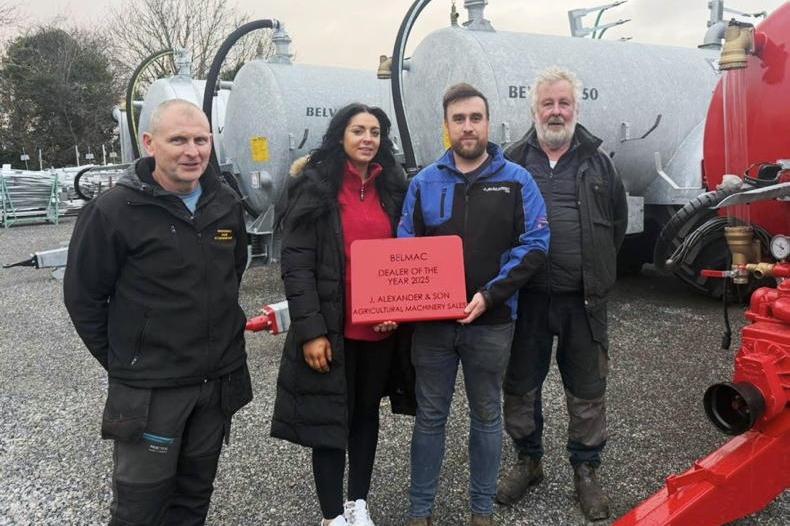
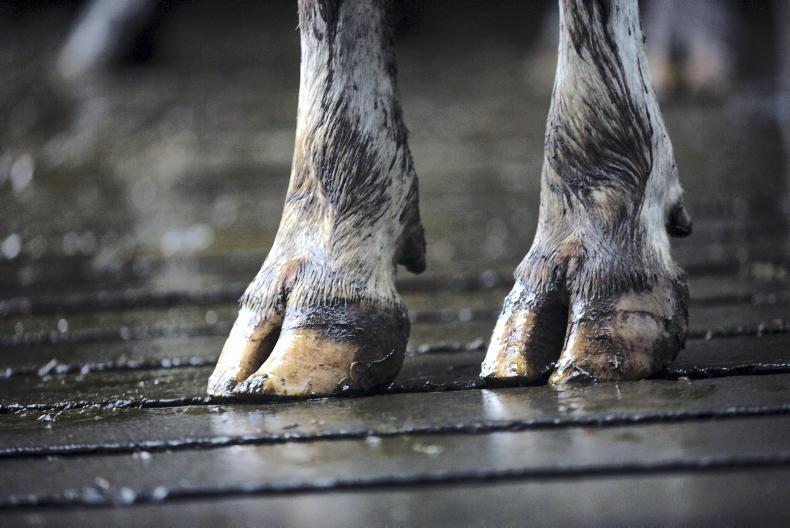
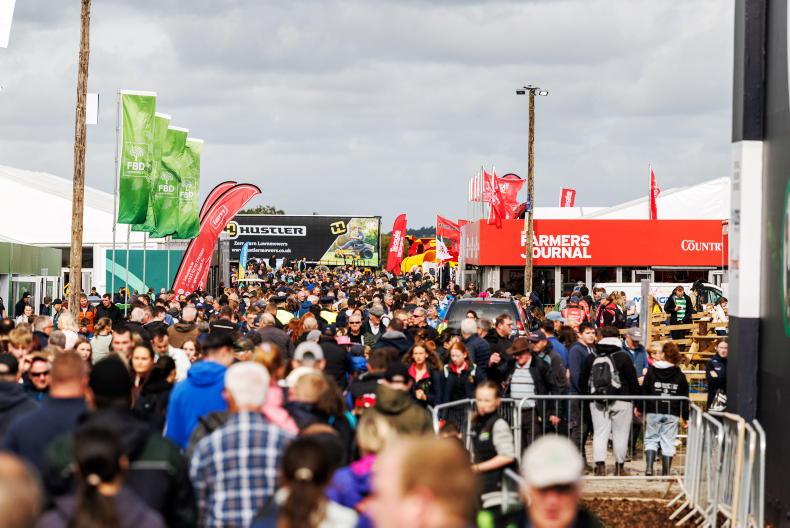
SHARING OPTIONS